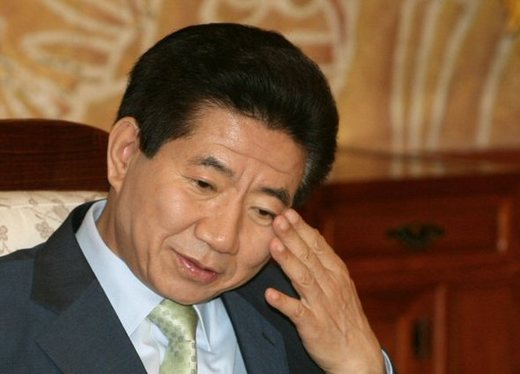 |
|
President Roh Moo Hyun after 5.31 election.
|
Report concedes president did not tap into society’s passion
A leading political observer said South Korea’s loss of interest in politics can be blamed on President Roh Moo-hyun, as he has eschewed conflict and passion in the way he leads the country. The opinions of Ahn Byoung-jin, professor at Changwon National University, were published in the magazine, "Trend and Outlook." In the article, Professor Ahn tries to explain why the ruling Uri Party was completely crushed in the May 31 local elections by the main opposition Grand National Party (GNP).A former human rights lawyer elected on a liberal platform in late 2002, President Roh has been known to risk fighting about contentious issues. However, Professor Ahn said that President Roh has become "post political," citing his intentional avoidance of conflict and competition among classes. Such a "post-political" leadership tends to turn a blind eye to the fact that politics is a platform where citizens express their passions, said Professor Ahn, but rather puts more emphasis on dialogue and compromise. Through the prism of Chantal Mouffe, a political philosopher, Professor Ahn sees President Roh’s key economic and political agendas a result of his "post-political" attitude, disguised by rationalism. "[The president] has placed an extreme focus on dialogue, overlooking what politics is all about," Professor Ahn said. President Roh’s leadership also runs counter to how his participatory government was born, the professor said. "The birth of the participatory [Roh] government resulted from antagonistic passion erupting against existing rule." Although it was within this passion that the Roh administration began its tenure, the administration has since taken the opposite path, Professor Ahn said, confining conflict only to certain elite groups, such as politicians. As a result of such monotonous and weak politics, Professor Ahn said, people have fallen into a "politics of lust" because of what the current administration has not provided them. As an example, the professor cited the recent turn toward "right-wing populism" in the recent local-level elections. Professor Ahn provided the example of a GNP lawmaker’s pledge to provide apartments at half their current price. Whether plausible or not, such a statement has the power to appeal to the people, he said. "We need to translate conflict among antagonistic groups into a vigorous democracy," Professor Ahn said, "and focus on diverting social antagonisms through proper channels."





